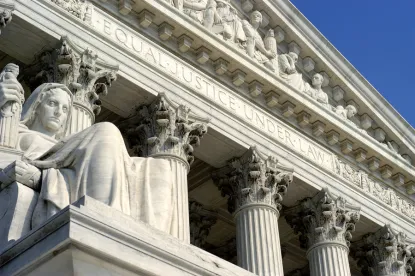A hotly contested ruling in a Fair Credit Reporting Act (“FCRA”) class action case will soon be appealed to the Supreme Court of the United States. The Ninth Circuit in Ramirez v. TransUnion LLC, Case No. 17-17244, recently granted the parties’ Joint Motion to Stay the Mandate, seeking to stay the Ninth Circuit’s mandate pending TransUnion’s filing of a petition for writ of certiorari in the Supreme Court. The Motion to Stay comes soon after the court denied TransUnion’s Petition for Rehearing or Rehearing En Banc regarding the Ninth Circuit’s decision in Ramirez v. TransUnion LLC, 951 F.3d 1008 (9th Cir. 2020).
In Ramirez, the Ninth Circuit held for the first time that every class member in a class action lawsuit needs “standing” to recover damages at the final judgment stage. The 8,185 member class alleged that TransUnion, knowing that its practice was unlawful, violated the FCRA by incorrectly placing terrorist alerts on the front page of consumers’ credit reports and later sending the consumers misleading and incomplete disclosures about the alerts and how to remove them. The court held that each class member was required to, and did, have standing, even though the credit reports of over 75% of the class were not actually disclosed to a third party because TransUnion’s alleged violation of the consumers’ statutory rights under the FCRA, by itself, constituted a concrete injury. The Ninth Circuit also found that the jury’s punitive damages award of 6.45 times the statutory damages award was unconstitutional, and reduced it to 4 times the statutory damages award. The Ramirez decision is discussed in more detail here.
In its Petition for Rehearing, TransUnion claimed that the dissent had the correct view, and the majority’s decision “not only conflicts with Supreme Court teachings, but puts the Ninth Circuit on the wrong side of a lopsided circuit split.” TransUnion argued that the class of consumers did not have standing for their FCRA claims unless their credit reports were disclosed to a third party. TransUnion further alleged that the class should have been decertified because Ramirez, the named plaintiff, “was radically atypical of the class he purported to represent” since there was no evidence that any other class member’s credit report was disseminated. Finally, TransUnion disputed the court’s punitive damages award because a reduction to 4 times the statutory damages award was not enough. According to TransUnion, the Supreme Court requires, at a maximum, a punitive damages award “equal to compensatory damages . . . when compensatory damages are substantial.”
TransUnion concluded its Petition for Rehearing by stating:
It is no exaggeration to say that, for many class members, the first indication that they were injured at all will be when they receive a $4,925.10 check in the mail. That absurd result is the product of ignoring basic requirements of Article III, Rule 23, and due process.
As of the date this article is published, TransUnion has not yet filed its petition for writ of certiorari in the Supreme Court, but we will continue to monitor the case for updates.





 />i
/>i

